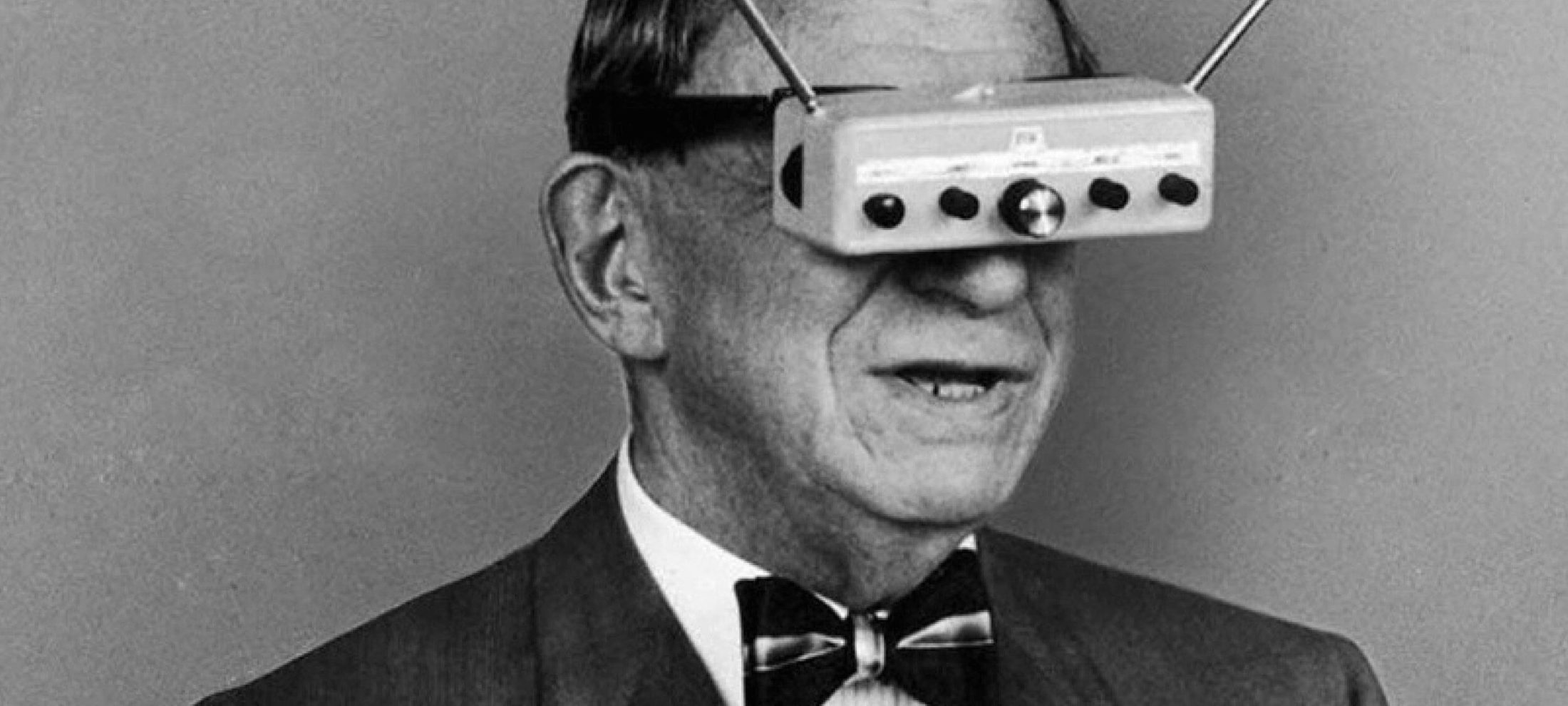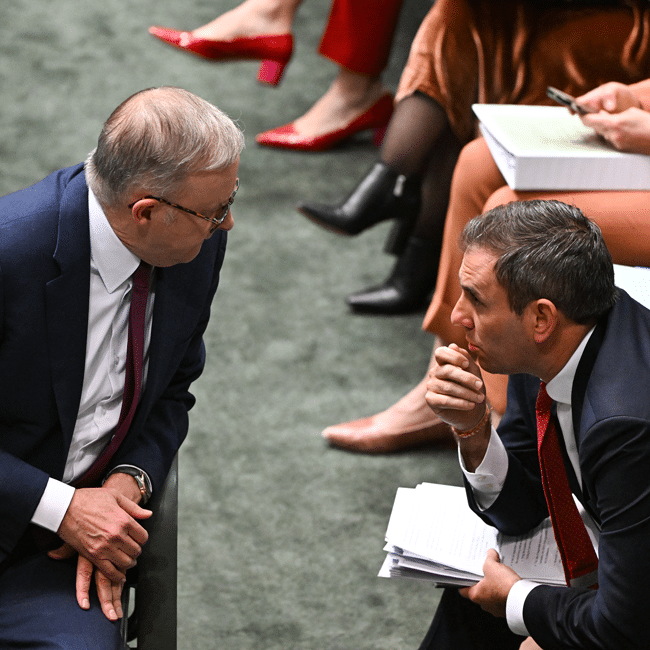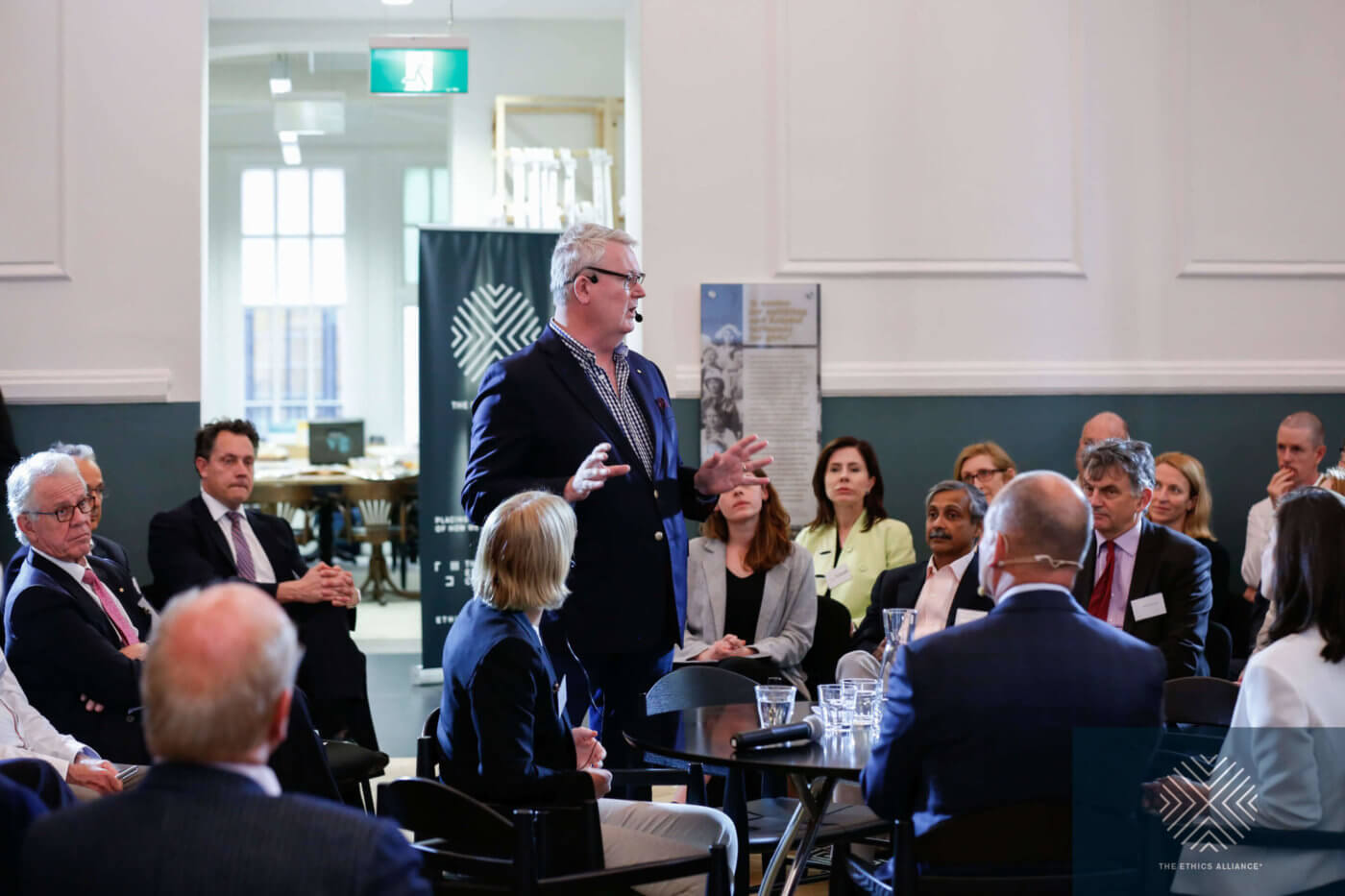Will I, won’t I? How to sort out a large inheritance

Will I, won’t I? How to sort out a large inheritance
Opinion + AnalysisRelationships
BY Sally Murphy The Ethics Centre 21 MAY 2018
Torn between rights and obligations, a long-suffering widower agonises over how to divvy up his assets, while an aunt’s growing nest egg is in danger of being squandered. This month we are talking about inheritance on Ethi-call.
Disclaimer: The cases shared here are fictional accounts of typical dilemmas faced by callers who use The Ethics Centre’s free helpline Ethi-call. This is not a substitute for an Ethi-call counselling session.
Inheritance is a sticky issue. No matter your role – the writer of the will, the executor, the recipient, or the advisor – each individual has a view of how important justice, fairness, obligations, or rights are in making their decisions. If you’re lucky, these views are shared among all involved. At Ethi-call, The Ethics Centre’s free counselling service for ethical dilemmas, we know they usually aren’t.
Take this typical scenario:
Peter is a widower with two children in their late 40s. His daughter is a university educated high earner with a husband and two children. His son doesn’t have qualifications and although he works hard, he changes jobs frequently, never having found a satisfying career path. He is divorced and also has two children.
Peter has a degenerative disease and knows he will not live to see his grandchildren grow up. His will provides a 50/50 split of his assets between his children but he feels his son needs more help.
Peter tried talking with his daughter about this but she was upset he was considering treating them differently. She said she should not be penalised for her hard work and her brother is not entitled more because of his own life choices. Peter loves both his children and doesn’t want his daughter to feel undervalued. Some of his friends have even said she deserves more than half as a reward for the disciplined life she’s led. His wife who died four years ago wanted to make sure all her grandchildren were provided for generously and Peter wants his will to be fair, without causing pain or ill will. He just can’t see how he can achieve this. He is very distressed about the decision he has to make.
Ethics asks, “What ought one do?” I put to you, “What should Peter do?” He knows he must consider everyone who might be impacted by his decision and he has already identified the following:
- Wanting to be fair and equal to his children
- The capacity for inheritance to be perceived as a reward or punishment
- His role as a grandfather and the duty he feels to support his grandchildren
- An absolute desire to preserve his relationship with his children and their relationship with each other
If Peter were to contact Ethi-call, some questions he might be asked include:
- What is the purpose of a will?
- What has been your experience of receiving inheritance in the past and do you think it was handled well?
- What are the religious or cultural norms that guide your decisions in life?
There is no doubt his children may each desire different outcomes. But if he has to choose, what is most important to him when allocating his estate?
At least for Peter’s children, his final wishes will be sorted before he passes away. What if the writer of the will is already gone, and the family can only guess what the intentions were behind it?
Take this situation:
Before Sarah’s mother died, she said she wanted her young granddaughter Alexis to inherit a significant sum of money when she turned 18. She asked her only daughter Sarah, Alexis’ aunty, to be trustee of the funds until she turned 18 because Alexis’ father had passed away. Sarah’s investing has seen the funds grow significantly. Alexis’ maturity? Not so much.
Now months away from being eligible to receive her inheritance, Sarah is concerned about Alexis’ behaviour. She dropped out of school, is not working, and smokes a lot of pot. Sarah hopes this is just a phase but sees Alexis’ mum in her and worries it might just be her personality or chosen path.
Alexis and her mum struggle financially. Sarah has no idea how they get by and can see a cash injection could relieve pressure. But she is also concerned they won’t have the willpower, skills, or knowledge to look after the funds appropriately. She believes the signs show if Alexis doesn’t squander it, her mum will.
Sarah is torn between her duty to fulfil her mother’s wishes and her loyalty to her and her memory. She was a woman with a strong work ethic, who was dedicated to growing her personal wealth through prudence and patience. Sarah has every intention of following the requirements of the will, but she is struggling with how much control she is entitled to. What ought Sarah do?
- Should she try and help Alexis learn about money management?
- Is it her right to make suggestions around how the money is invested or saved?
- Whose wishes matter most – Sarah’s deceased mother, Sarah as trustee, Alexis, or Alexis’ mother?
Sarah is a woman of integrity and will respect Alexis’ right to inherit the money. But is there a way she can fulfil her mother’s wishes and do the best she can to ensure Alexis respects her legacy?
Both of these fictional cases depict someone struggling with what to do in a situation. An Ethi-call counsellor will never tell someone what to do. Instead, they follow a framework developed by The Ethics Centre over the last 25 years. This framework is driven by a wide range of questions that can often help unpack a dilemma in a way that the caller was not able to do on their own. And while a counsellor may seem to ask a lot of questions at first, there is a reason for them.
Struggling with inheritance can feel like being inside the home of the loved one you have lost. Memories, treasures, and sentimental trinkets pull you in multiple directions. But every house has a door. And every dilemma has a beginning.
There is no magic dust to make what is difficult, easy. But Ethi-call can help you find relief with understanding. A counsellor’s impartial and expert advice can be a guiding hand through neglected corridors and cobwebbed cupboards. Sometimes, someone removed from the trauma of a loved one’s death is exactly who you need to help you make your way through what is one of life’s hardest challenges.
Tough decisions are part of being human. We can help. Let us show you how. Book your free Ethi-call session here.Sally Murphy is an Ethi-call counsellor and manager of education programs at The Ethics Centre.
Follow The Ethics Centre on Twitter, Facebook, Instagram and LinkedIn.
Ethics in your inbox.
Get the latest inspiration, intelligence, events & more.
By signing up you agree to our privacy policy
You might be interested in…
Opinion + Analysis
Relationships
Free speech has failed us
Explainer
Relationships
Ethics Explainer: Blame
Opinion + Analysis
Relationships
How to give your new year’s resolutions more meaning
Opinion + Analysis
Business + Leadership, Relationships
Game, set and match: 5 principles for leading and living the game of life
BY The Ethics Centre
The Ethics Centre is a not-for-profit organisation developing innovative programs, services and experiences, designed to bring ethics to the centre of professional and personal life.
The art of appropriation

The art of appropriation
Opinion + AnalysisSociety + Culture
BY Oscar Schwartz The Ethics Centre 14 MAY 2018
In March this year, paintings in an exhibition by the British artist Damien Hirst caused controversy for bearing strong resemblance to works by Aboriginal artists from the Central Desert region near Alice Springs.
Hirst, one of the world’s best known contemporary artists, unveiled 24 new paintings at an exhibition in Los Angeles. The works, called Veil Paintings, were large canvases covered with thousands of multi-coloured dots.
Many Australians immediately noticed the similarity to a style of Indigenous dot painting developed in the Central Deserts region, particularly the paintings of internationally renowned artist, Emily Kngwarreye.
Kngwarreye’s paintings of layered coloured dots in elaborate patterns portray aerial deserts landscapes crafted from memory. Her style has been passed down across generations and has deep cultural importance.
Barbara Weir, an artist from the Central Deserts, told the ABC that Hirst recreated the painting style without understanding the culture behind it. While Hirst denied being aware of Kngwarreye’s paintings, Bronwyn Bancroft of the Arts Law Centre said that he still had a “moral obligation” to acknowledge the influence of the Aboriginal art movement.
Whether or not Hirst was directly copying the style, the controversy his paintings caused centred on the ethical issue of appropriation. Should artists use images or styles that are not their own, especially when those images or styles are tied to the sacred history of another culture?
Avant-garde appropriation
While copying and imitation has been central to artistic practice in many cultures for millennia, appropriation as a creative technique rose to prominence in avant-garde modernist movements in the early 20th century.
Cubists like Pablo Picasso and Georges Braque used appropriation in their collage and pastiche paintings, often lifting images from newspapers to incorporate into their work. Marcel Duchamp developed the practice further through his ready-mades – objects taken form real life and presented as art – like his infamous Fountain, a urinal signed, turned upside down, and positioned on a pedestal.
“These artists used appropriation to challenge traditional notions of originality and often approached art as an ethically weightless space where transgressive ideas could be explored without consequence.”
The art of appropriation was further developed by pop artists like Andy Warhol and Jasper Johns in the 1950s and later in the 1980s by Jeff Koons and Sherrie Levine. These artists used appropriation to challenge traditional notions of originality and often approached art as an ethically weightless space where transgressive ideas could be explored without consequence.
A more recent proponent of appropriation as creative practice is the poet Kenneth Goldsmith, who wrote a book called Unoriginal Genius, which defends appropriation in art. He argues that in our digital age, access to information has made it impossible to be truly original. In such an environment, the role of the artist is to embrace a free and open exchange of ideas and abandon notions of singular ownership of an aesthetic or style.
Cultural appropriation
While appropriating, remixing, and sampling images and media is common practice for artists, it can cause conflict and hurt, particularly if the materials are culturally or politically sensitive. For instance, in 2015, Kenneth Goldsmith performed a poem that appropriated text from the autopsy of Michael Brown, an African American man who was shot by police.
Critics were outraged at Goldsmith’s performance, particularly because they felt that it was inappropriate for a white man to use the death of a black man as creative material for personal gain. Others labelled Goldsmith’s poems as an extreme example of cultural appropriation.
Writer Maisha Z Johnson defines cultural appropriation as “members of a dominant culture taking elements from a culture of people who have been systematically oppressed by that dominant group”. The problem with cultural appropriation, she explains, is not the act of an individual artist, but how that artist perpetuates an unjust power dynamic through their creative practice.
In other words, cultural appropriation in art is seen by some as perpetuating systemic oppression. When artists in a position of power and privilege appropriate from those who aren’t, they can profit from what they take while the oppressed group gets nothing.
Cultural sensitivity
Issues of cultural appropriation are particularly sensitive for Aboriginal artists in Australia because painting styles are not only an expression of the artist’s creative talent, but also often convey sacred stories passed down from older generations. Painting, therefore, is often seen not only as a type of craft, but a way of keeping Aboriginal culture alive in white Australia.
It is possible that Hirst was not aware of this context when he created his Veil Paintings. In an increasingly connected world in which images and cultures are shared and inter-mixed, it can be difficult to attribute where creative inspiration comes from.
Yet, perhaps our connectivity only heightens the artist’s moral obligation for cultural sensitivity and to acknowledge that art is never made in a vacuum but exists in a particular geography, history, economy, and social context.
Follow The Ethics Centre on Twitter, Facebook, Instagram and LinkedIn.
Ethics in your inbox.
Get the latest inspiration, intelligence, events & more.
By signing up you agree to our privacy policy
You might be interested in…
Opinion + Analysis
Politics + Human Rights, Relationships, Society + Culture
You won’t be able to tell whether Depp or Heard are lying by watching their faces
Opinion + Analysis
Society + Culture, Politics + Human Rights
Who gets heard? Media literacy and the politics of platforming
Opinion + Analysis
Society + Culture
What does Adolescence tell us about identity?
Opinion + Analysis
Politics + Human Rights, Relationships, Society + Culture
Punching up: Who does it serve?
BY Oscar Schwartz
Oscar Schwartz is a freelance writer and researcher based in New York. He is interested in how technology interacts with identity formation. Previously, he was a doctoral researcher at Monash University, where he earned a PhD for a thesis about the history of machines that write literature.
BY The Ethics Centre
The Ethics Centre is a not-for-profit organisation developing innovative programs, services and experiences, designed to bring ethics to the centre of professional and personal life.
Is it ok to use data for good?

Is it ok to use data for good?
Opinion + AnalysisBusiness + LeadershipScience + Technology
BY Adam Piovarchy The Ethics Centre 7 MAY 2018
You are nudged when your power bill says most people in your neighbourhood pay on time. When your traffic fine spells out exactly how the speed limits are set, you are nudged again.
And, if you strap on a Fitbit or set your watch forward by five minutes so you don’t miss your morning bus, you are nudging yourself.
“Nudging” is what people, businesses, and governments do to encourage us to make choices that are in our own best interests. It is the application of behavioural science, political theory and economics and often involves redesigning the communications and systems around us to take into account human biases and motivations – so that doing the “right thing” occurs by default.
The UK, for example, is considering encouraging organ donation by changing its system of consent to an “opt out”. This means when people die, their organs could be available for harvest, unless they have explicitly refused permission.
Governments around the world are using their own “nudge units” to improve the effectiveness of programs, without having to resort to a “carrot and stick” approach of expensive incentives or heavier penalties. Successes include raising tax collection, reducing speeding, cutting hospital waiting times, and maintaining children’s motivation at school.
Despite the wins, critics ask if manipulating people’s behaviour in this way is unethical. Answering this question depends on the definition of nudging, who is doing it, if you agree with their perception of the “right thing” and whether it is a benevolent intervention.
Harvard law professor Cass Sunstein (who co-wrote the influential book Nudge with Nobel prize winner and economist Professor Richard Thaler) lays out the arguments in a paper about misconceptions.
Sunstein writes in the abstract:
“Some people believe that nudges are an insult to human agency; that nudges are based on excessive trust in government; that nudges are covert; that nudges are manipulative; that nudges exploit behavioural biases; that nudges depend on a belief that human beings are irrational; and that nudges work only at the margins and cannot accomplish much.
These are misconceptions. Nudges always respect, and often promote, human agency; because nudges insist on preserving freedom of choice, they do not put excessive trust in government; nudges are generally transparent rather than covert or forms of manipulation; many nudges are educative, and even when they are not, they tend to make life simpler and more navigable; and some nudges have quite large impacts.”
However, not all of those using the psychology of nudging have Sunstein’s high principles.
Thaler, one of the founders of behavioural economics, has “called out” some organisations that have not taken to heart his “nudge for good” motto. In one article, he highlights The Times newspaper free subscription, which required 15 days notice and a phone call to Britain in business hours to cancel an automatic transfer to a paid subscription.
“…that deal qualifies as a nudge that violates all three of my guiding principles: The offer was misleading, not transparent; opting out was cumbersome; and the entire package did not seem to be in the best interest of a potential subscriber, as opposed to the publisher”, wrote Thaler in The New York Times in 2015.
“Nudging for evil”, as he calls it, may involve retailers requiring buyers to opt out of paying for insurance they don’t need or supermarkets putting lollies at toddler eye height.
Thaler and Sunstein’s book inspired the British Government to set up a “nudge unit” in 2010. A social purpose company, the Behavioural Insights Team (BIT), was spun out of that unit and is now is working internationally, mostly in the public sector. In Australia, it is working with the State Governments of Victoria, New South Wales, Western Australia, Tasmania, and South Australia. There is also an office in Wellington, New Zealand.
BIT is jointly owned by the UK Government, Nesta (the innovation charity), and its employees.
Projects in Australia include:
Increasing flexible working: Changing the default core working hours in online calendars to encourage people to arrive at work outside peak hours. With other measures, this raised flexible working in a NSW government department by seven percentage points.
Reducing domestic violence: Simplifying court forms and sending SMS reminders to defendants to increase court attendance rates.
Supporting the ethical development of teenagers: Partnering with the Vincent Fairfax Foundation to design and deliver a program of work that will encourage better online behaviour in young people.
Senior advisor in the Sydney BIT office, Edward Bradon, says there are a number of ethical tests that projects have to pass before BIT agrees to work on them.
“The first question we ask is, is this thing we are trying to nudge in a person’s own long term interests? We try to make sure it always is. We work exclusively on social impact questions.”
Braden says there have been “a dozen” situations where the benefit has been unclear and BIT has “shied away” from accepting the project.
BIT also has an external ethics advisor and publishes regular reports on the results of its research trials. While it has done some work in the corporate and NGO (non-government organisation) sectors, the majority of BIT’s work is in partnership with governments.
Braden says that nudges do not have to be covert to be effective and that education alone is not enough to get people to do the right thing. Even expert ethicists will still make the wrong choices.
Research into the library habits of ethics professors shows they are just as likely to fail to return a book as professors from other disciplines. “It is sort of depressing in one sense”, Braden says.
If you want to hear more behavioural insights please join the Ethics Alliance events in either Brisbane, Sydney or Melbourne. Alliance members’ registrations are free.
Ethics in your inbox.
Get the latest inspiration, intelligence, events & more.
By signing up you agree to our privacy policy
You might be interested in…
Opinion + Analysis
Health + Wellbeing, Relationships, Science + Technology
How to put a price on a life – explaining Quality-Adjusted Life Years (QALY)
Opinion + Analysis
Business + Leadership
Sir Geoff Mulgan on what makes a good leader
Big thinker
Society + Culture, Business + Leadership
Big Thinker: Ayn Rand
Opinion + Analysis
Business + Leadership
Why do good people do bad things?
BY Adam Piovarchy
Adam Piovarchy is a PhD candidate in Moral Psychology and Philosophy at the University of Sydney.
BY The Ethics Centre
The Ethics Centre is a not-for-profit organisation developing innovative programs, services and experiences, designed to bring ethics to the centre of professional and personal life.
6 Myths about diversity for employers to watch
6 Myths about diversity for employers to watch
Opinion + AnalysisBusiness + Leadership
BY The Ethics Alliance The Ethics Centre 7 MAY 2018
Employers can play a role in countering backlash attitudes to gender equality by making the case for why it is good for employees and good for the organisation.
Sociologist, Dr Michael Flood, says much of the opposition to diversity programs is based on misunderstandings, such as the following common myths:
If women win, men lose.
“There is a misperception that it is a zero sum game – that any gains for women at work necessarily involve losses for men”, he says.
Men’s own wellbeing is limited by narrow ideas about how they are “supposed” to behave, argues Flood in the recently released Men Make A Difference report, co-authored by diversity and inclusion researcher Dr Graeme Russell for the Diversity Council of Australia.
Men often pay heavy costs – in the form of shallow relationships, poor health, and early death – for conformity with narrow definitions of masculinity, according to the report.
There is a level playing field.
“Some men may also be under the misapprehension that the current system is already fair and the initiatives are unnecessary and unfairly advantage women”, says Flood.
“The current system is not and has not been fair. It has disadvantaged women and initiatives, such as affirmative action, make the system fairer. They give women and men the same opportunities.”
The national gender pay gap is 15.3 percent, with women earning on average, $253.70 a week less than men, according to the Workplace Gender Equality Agency. This disadvantage starts as soon as they graduate: women earn less than men in 17 out of 19 fields of study and across nine out of 13 industries.
Flood says a neoliberalist ideology holds that women can make it on their own and achievement is a matter of individual skill and effort and that social interventions are unnecessary, if not intrusive.
“There is also a widespread perception that gender inequality is a thing of the past. Therefore, if women are doing less well at work, then it is simply down to their own choices or their own fault”, he says.
“Those widespread beliefs also constrain our efforts to build gender equality.”
Some jobs are now women only.
Flood says that it is against the law to refuse to hire men and he does not believe this is happening systematically.
“If this were going on systematically then we might expect to find the numbers of women in Australian corporate boardrooms increasing and, in fact, in the last decade, it has decreased. A mere 16.5 percent of Australian CEOs or heads of business are women.
There are exemptions under discrimination law to allow special and positive measures to improve equality.
Men are being discriminated against.
Certainly, there are men who are facing more competition for jobs in areas where women are making gains, especially where employers are actively trying to recruit and promote more women to even up the gender balance.
Around 12 percent of men believe women are treated better than men, compared with 3 percent of women who believe the same, according the University of Sydney research.
However, Flood says he thinks it is wrong to assume men in that situation will miss out in favour in women who are weaker candidates.
“It may well happen that women are promoted above men who are worthy candidates but, in general, that is not the case. There is a different kind of fear, which is that he will now be judged equally against female candidates who have the same skills on their CV as him.”
“For some men, when they are used to privilege, they are used to advantage, then equality looks like discrimination.”
Flood says there are hundreds of studies that show that CVs with female names are judged more harshly by recruiters than those with male names.
We hire and promote on merit.
Flood says this is a simplistic argument against diversity programs and can be countered by pointing out the ways merit can be subjective and biased.
“We need to talk about actual merit and perceived merit.”
It is a women’s issue.
Flood says that men are also disadvantaged by inequality. Shorter men, for instance, find it harder to progress.
“Male CEOs, on average, are four or five centimetres taller. That is not because tall people are more competent, it is because they are perceived to be more competent and more appropriate leaders. So implicit and unconscious stereotypes shape who gets promoted.”
The quality of every man’s life depends to a large extent on the quality of those relationships with the women in their lives. “Men gain when the women and girls around them have lives which are safe and fair”, says Flood.

This article was originally written for The Ethics Alliance. Find out more about this corporate membership program. Already a member? Log in to the membership portal for more content and tools here.
Ethics in your inbox.
Get the latest inspiration, intelligence, events & more.
By signing up you agree to our privacy policy
You might be interested in…
Opinion + Analysis
Business + Leadership
An ethical dilemma for accountants
Opinion + Analysis
Politics + Human Rights, Business + Leadership
Political promises and the problem of ‘dirty hands’
Opinion + Analysis
Business + Leadership
Workplace ethics frameworks
Opinion + Analysis
Business + Leadership
Understanding the nature of conflicts of interest
BY The Ethics Alliance
The Ethics Alliance is a community of organisations sharing insights and learning together, to find a better way of doing business. The Alliance is an initiative of The Ethics Centre.
BY The Ethics Centre
The Ethics Centre is a not-for-profit organisation developing innovative programs, services and experiences, designed to bring ethics to the centre of professional and personal life.
Power play: How the big guys are making you wait for your money

Power play: How the big guys are making you wait for your money
Opinion + AnalysisBusiness + Leadership
BY The Ethics Centre 3 MAY 2018
The CEO was brutally honest in revealing how his multinational company uses its power to delay payment to its small suppliers. Unless there are laws to make them pay up earlier, small companies are forced to wait four months for their money, he said.
The business leader was explaining the policy of his overseas head office to Kate Carnell, the Australian Small Business and Family Enterprise Ombudsman, during her inquiry into late payments last year.
“I must admit I was just horrified”, says Carnell, who says a 30 day wait is acceptable business practise.
The CEO of the Australian arm of the multinational company said payment times were pushed out to 120 days. Says Carnell: “One guy [attending the inquiry] laughed and said, ‘You should consider yourself lucky, we have a 365 day payment contract in one country I know about’.”
“They said, ‘If there is nothing that makes us pay shorter, then we will pay longer. That is just the way we operate’.”
Carnell’s Inquiry into Payment Times and Practices uncovered a widespread exercise where big organisations are using small to medium sized suppliers as a cheap form of finance. By paying invoices months after products and services are delivered, large companies can improve the efficiency of their own working capital but, in doing so, starve their vulnerable small business operators of cash.
About half of the small to medium sized businesses surveyed by the inquiry say around 40 percent of invoices were paid late. According to Carnell, 90 percent of small businesses go broke because of cash flow issues and many try to tide themselves over with credit card debt and overdrafts.
Australia had the dubious honour of being the worst performer in global research on late payments by MarketInvoice in 2015, with settlement taking place an average 26.4 days after it was due.
Lending you the money they owe you
In a further development, interest bearing loans are being offered to suppliers who are waiting to get paid. Carnell has named Mars, Kellogg’s and Fonterra as three large companies offering this kind of supply chain finance.
These loans effectively levy a discount (the interest paid) on suppliers who cannot afford contractual waits of 120 days or more. “It’s pretty close to extortion really”, Carnell told the Sydney Morning Herald last year.
Another practise is to demand a discount from suppliers who want to be paid earlier than the contracted period – even though that period may be outside what is regarded as acceptable.
“There are two ways to do it. One is to require a discount, the other is to lend you the money at an interest – both of them are unacceptable”, says Carnell.
“You’ve got what is the essence of what could be regarded bullying, it is certainly using market power in an oppressive manner.”
Salt’s call for ‘same day pay’
Social commentator Bernard Salt recently called for “same day pay” in a column in The Australian newspaper, arguing that companies should not be buying products and services if they cannot pay for them straight away.
“There are 1.5 million small businesses in Australia. If you add in their partners, and staff and kids, then you are probably looking at four to five million people in Australia that are affected by timelines or otherwise of small business payments”, he says.
“The best thing you can do for small business is to pay promptly, on the day, same day pay. If you can’t pay for it, don’t buy the good or service.
“Refusing to pay in a timely and reasonable and fair manner is the equivalent of theft. I just cannot understand where people believe it is good or smart business practise. People might think it is smart, I think it is smarmy. If you incur a debt, you pay it and pay it promptly.”
Salt says he sees no reason why the flow of money is restricted to business hours, five days a week, when the rest of the world is operating 24/7.
“We should expect money to flow at the speed of data.”
Carnell says she is not demanding immediate payment … for now. “At some stage in the future, we think that is the way it should be. Right now, 30 days or less is reasonable”, she says.
Voluntary codes don’t work
To encourage best practise, Carnell’s office has set up the voluntary Small Business Ombudsman’s National Transparency Register. So far, around 21 organisations have agreed to report on their progress on paying promptly.
“It is a start, but it is a drop in the ocean really”, admits Carnell.
The Business Council of Australia responded to the inquiry by introducing its own voluntary Australian Supplier Payment Code, which commits signatories to 30 day payment times to small businesses and has around 77 signatories, but it has no requirement that companies report.
The NSW Small Business Commissioner, Robyn Hobbs, recently told ABC Radio that she does not think the BCA code goes far enough. “These things should be mandatory”, she said.
Carnell says her approach is to try a voluntary approach first, but admits she has little faith it will work.
“We looked around the world … and we hadn’t found a situation where a voluntary code had worked to create systemic change. The problem with voluntary codes is that the good corporate citizens sign them.”
People who think their own cash flow is more important than the economy won’t sign, she says.
“We would love a voluntary code to work because it would show that, as a nation, we do take good business practise, ethical behaviour, really seriously and we can make these things work without legislation. We will review it in 12 months and we would expect, if it had not been successful, that a Government would legislate.”
Governments set a standard
In the UK, the Government has introduced a voluntary Prompt Payment Code, working towards 30 day payment, and there is legislation requiring large businesses to publish details publicly of their actual payment times.
Governments can provide a good example to the commercial sector. A UK Central Government Prompt Payment policy seeks to pay 80 per cent of undisputed and valid invoices within five days.
The European Union has a Late Payment Directive setting a maximum payment time of 60 days, or 30 days for government, with an interest penalty, and ability to claim compensation and recovery costs. US government has QuickPay to reduce government payment times from 30 days to 15 days.
In Australia, Federal Government agencies have committed to paying small operators in 15 business days by mid 2019.
Some individual companies have also taken up the challenge since the inquiry, which reported a year ago. Since the inquiry, Mars has moved from 120 day payment terms to 30 days for small businesses. “That is a big step”, says Carnell.
Telstra has also “made a big effort”, reducing payment times from 45 days or longer down to 30 days or fewer for all its 7366 small business suppliers. The telco spends around $2.9 billion each year with small business suppliers.
“Those are the ones I know that have actually had to go through quite a lot of hassle to change their systems, it wasn’t a simple flick of the switch. The banks tell us they have moved to 30 days or less”, she says.
Woolworths and Coles have committed to paying small suppliers within 14 days.
“Some good things are happening, but it’s not enough, not nearly enough”, says Carnell.
Boards do not know if they are slow payers
Carnell has been in discussions with the Australian Institute of Company Directors about making payment times reporting a standard agenda item for board meetings.
“My experience as both a CEO and a board member, is that focusing the board’s mind on these sorts of things makes a big difference to corporate culture. Our experience, when talking to board members, is they have no idea how their company is operating in terms of payment times.”
A spokesman for the AICD says the organisation is promoting the code and the views of the Ombudsman to its members but cannot control what boards put on their agenda.
One entrepreneur has decided to take matters into her own hands, launching a “name and shame” platform for small business operators.
Frances Short launched the Late Payer List in March so that small to medium sized businesses could check the reputations of buyers or report cases where clients were too tardy or refusing to pay on invoices where there was no dispute about the work or products.
Short says she came up with the idea after watching her partner, a builder, continually have to chase payment, sometimes resorting to legal action.
Once when one client kept dodging a large payment, Short’s partner tried some social shaming. “He said to this guy, ‘I’m going to come down to your church wearing a sandwich board, telling your neighbours that you owe money and it’s not fair’.” The customer paid up.
“We want to do something for small biz that was much simpler, something that was socially powered and giving control back to small business owners, without the need for using expensive debt collectors or lawyers”, she says.
“What we have got is a bit of a nudge, nudge for late payers, so there is a consequence.”
The Ethics Alliance collaborated with members on a new procurement research paper for making ethical payment easy. Download your copy here.

This article was originally written for The Ethics Alliance. Find out more about this corporate membership program. Already a member? Log in to the membership portal for more content and tools here.
Ethics in your inbox.
Get the latest inspiration, intelligence, events & more.
By signing up you agree to our privacy policy
You might be interested in…
Opinion + Analysis
Business + Leadership
360° reviews days are numbered
Opinion + Analysis
Business + Leadership, Politics + Human Rights
Democracy is still the least-worst option we have
Opinion + Analysis
Business + Leadership
Who are corporations willing to sacrifice in order to retain their reputation?
Opinion + Analysis
Business + Leadership
How ‘ordinary’ people became heroes during the bushfires
BY The Ethics Centre
The Ethics Centre is a not-for-profit organisation developing innovative programs, services and experiences, designed to bring ethics to the centre of professional and personal life.
Is employee surveillance creepy or clever?

Is employee surveillance creepy or clever?
Opinion + AnalysisBusiness + Leadership
BY The Ethics Alliance The Ethics Centre 1 MAY 2018
A large European bank tracks its employees in work hours, using digital badges to analyse where they went, to whom they spoke and how stressed they were.
Is this creepy or clever?
According to the manufacturer of the badges, US company Hamanyze, the surveillance helped uncover why some bank branches were outperforming others by more than 300 per cent.
Discovering that employees at the “star” branches interacted more frequently – seeing and talking to each other more often – the bank redesigned its offices to encourage people to mix and offered group bonuses to encourage collaboration.
As a result, the lagging branches reportedly increased their sales performance by 11 per cent.
The results in this case seem to indicate this is a clever use of digital technology. The bank had a legitimate reason to track its employees, it was transparent about the process, and the employees could see some benefit from participating.
If it is secret, it’s unethical
Creepy tracking is the unethical use of the technology – where employees don’t know they are being monitored, where there is no benefit to them and the end result is an erosion of trust.
In the UK, for instance, employees at the Daily Telegraph were outraged when they discovered motion detectors had been installed under their desks without their knowledge or consent. They insisted on their removal.
Two years ago, Rio Tinto had to deny it was planning to use drones to conduct surveillance on its workers at a Pilbara mining site after some comments by an executive of Sodexo (which was under contract to provide facilities management to Rio Tinto). Those comments about drone use were later described as “conceptual”.
Employee surveillance during work hours is allowed in Australia if it relates to work and the workers have been informed about it, however legislation varies between the states and territories.
Deciding where ethical and privacy boundaries lie is difficult. It depends on individual sensibilities, but the ground also keeps shifting. As a society, we are accepting increasing amounts of monitoring, from psychometric assessments and drug tests, to the recording of keystrokes, to the monitoring of personal social media accounts.
Co-head of advice and education at The Ethics Centre, John Neil, says legislation is too slow to keep up with rapidly advancing technologies and changing social attitudes.
“It is difficult to set binding rules that stand the test of time,” he says. “Organisations need guiding principles to ensure they are using technologies in an ethical way”.
Guiding principles are required
The Institute of Electrical and Electronics Engineers have developed ethical principles for artificial intelligence and autonomous systems. These state the development of such technologies must include: protecting human rights, prioritising and employing established metrics for measuring wellbeing; ensuring designers and operators of new technologies are accountable; making processes transparent; minimising the risks of misuse.
Principles such as these can help businesses and people distinguish between what is right, and what is merely legal (for now).
Putting aside the fact that employee monitoring is allowed by law, the key to whether workers accept it depends on whether they think it will be good for them as individuals, says US futurist Edie Weiner.
People may not mind their movements being tracked at work if they believe the information is being used to improve the working environment and will benefit them, personally.
“But if it was about figuring out how to replace them with a machine, I think they would really care about it,” says Weiner, President and CEO of The Future Hunters. Weiner was in Sydney recently to speak at the SingularityU Australia Summit, held by the Silicon Valley-based Singularity University
When it comes to privacy considerations, Weiner applies a formula to understand how people accept intrusion. She says privacy equals:
- Your age
- Multiplied by your technophilia (love of technology)
- Divided by your technophobia (fear of technology)
- Multiplied by your control over the information being collected
- Multiplied again by the returns for giving up that privacy.
“Each person figures out the formula and, if the returns for what they are giving up is not worth it, then they will see that as an invasion of their privacy,” she says.

This article was originally written for The Ethics Alliance. Find out more about this corporate membership program. Already a member? Log in to the membership portal for more content and tools here.
Ethics in your inbox.
Get the latest inspiration, intelligence, events & more.
By signing up you agree to our privacy policy
You might be interested in…
Opinion + Analysis
Business + Leadership
How ‘ordinary’ people became heroes during the bushfires
Opinion + Analysis
Business + Leadership
The Ethics Alliance: Why now?
Opinion + Analysis
Business + Leadership
Workplace ethics frameworks
Opinion + Analysis
Business + Leadership
Getting the job done is not nearly enough
BY The Ethics Alliance
The Ethics Alliance is a community of organisations sharing insights and learning together, to find a better way of doing business. The Alliance is an initiative of The Ethics Centre.
BY The Ethics Centre
The Ethics Centre is a not-for-profit organisation developing innovative programs, services and experiences, designed to bring ethics to the centre of professional and personal life.
The five biggest myths of ethical fashion

The five biggest myths of ethical fashion
Opinion + AnalysisClimate + EnvironmentHealth + WellbeingSociety + Culture
BY The Ethics Centre 18 APR 2018
We all know the way we shop is unsustainable.
Australians are the second biggest consumers of textiles worldwide. We throw more than 500,000 tonnes of the stuff into landfill every day. We only wear our garments seven times before throwing them away and still buy an average of twenty seven kilograms of new clothing each year.
The ethical fashion movement promotes a cull of fast fashion’s massive social and environmental impact. But why aren’t more people engaging in it?
We spoke to Clara Vuletich about the five biggest myths of ethical fashion – and if they’re keeping people out.
1. Ethical fashion has to be exclusive
It used to be the case that shopping ethically meant visiting tiny, hole-in-the-wall boutiques, which were either aggressively minimalist or bursting with colours a Crayola pack would be shy to wear. But it’s becoming mainstream.
Vuletich says big brands like H&M and Country Road are engaging with the ethical space in ways unique to their breadth and industry relationships. Another brand, Uniqlo, has introduced a recycling drive for customers to return their secondhand clothes. Though these actions are often met with a sceptical “But it’s just PR” comment, Vuletich says they are a step in the right direction.
‘The people that work in this space aren’t monsters’, she says. ‘They aren’t all ego-driven. It’s much more nuanced than that.’ The relationship a big brand like H&M has developed over decades with their primary garment supplier in Shanghai (for example) isn’t insignificant. They know their names, their families, their lives.
2. Ethical fashion has to be vegan, natural and eco-friendly
Catch-all phrases like natural, eco-friendly, or yes, ethical, are usually a sign to look further, warns Vuletich. Cotton, one of the most prolific materials worldwide, almost always produces toxic effluent from pesticides and dyes, and relies on infamously exploitative farming environments.
According to Levi’s, one denim pair of jeans is made with 2,600 litres of water. Polyester, a synthetic material derived from plastic, is far more easily recycled and reused than any other natural material.
But polyester can take up to 200 years to decompose. In landfill, wool creates methane gas. So which is better for the environment? The complexity of textile production makes it impossible to rank fabrics on a hierarchy of environmental sustainability.
3. Ethical fashion has to be local
Cutting down transport emissions does matter. But the fact is, unless we start growing cotton farms and erecting textile mills in our local communities, the creation of any piece of clothing will have some international process to it.
A ‘Made in Australia’ tag won’t always be the guarantor of quality and safe working conditions. Neither does a ‘Made in China’ tag mean poor workmanship and sweatshops (anymore).
For the quality, bulk, and turnaround the Australian fashion market wants, whether ethical or not, international processes are not an unfortunate by-product – they are crucial to its existence. Fabric manufacturing is one of the quickest ways for communities and countries to rise out of poverty and the solution isn’t to pull the rug out from under them.
4. Ethical fashion has to be expensive
If you’re looking for a new piece of clothing where every worker in the supply chain has been paid well, it stands to reason the final product will be expensive. If you don’t have money to burn, there are other clothing choices you can make that won’t exploit the earth and human race.
Vuletich is a big fan of secondhand shopping – think Salvos, Vinnies, U-Turn, Swop, Red Cross, Gumtree… Secondhand goods they may be, but that’s not a codeword for cheap, shoddy, or badly made. Instead of a fast fashion giant, your purchase funds a local charity, business, or market stall owner.
No extra resources were extracted for anyone to get that piece of clothing to you, nor was anyone enslaved to sew your new threads. It’s likely a local near the shop donated it, so transport emissions are low, and you’re also keeping something out of landfill.
5. Ethical fashion leads to social impact
Vuletich is wary of making huge claims. Slogans like ethical fashion will save the world are just that – slogans. The effectiveness of campaigns like the 1-for-1 business model have been thoroughly debunked, and it’s doubtful buying a pair of fair trade sandals will do as much good as a country changing their labour laws. But will it have some impact? She says yes.
For someone not in the industry, the complexity is overwhelming. Trying to track the supply chain of a polyester dress might take you to one factory in Turkey, while following the history of a pair of denim jeans will take you to China – if the clothing company even knows where their raw materials are sourced. The sheer scale of garment manufacturing is the main reason ethical fashion is intimidating, and that’s not taking into account consumer needs.
Fashion is personal. People want different things from their clothing – they might want it to be free of animal products, or for it to be breathable and comfortable, or for it to be made with as little impact to local communities as possible. They might want it to make them stand out, or to make them blend in.
They might want it to be easy and careless. But with the growing social, political and environmental consciousness around fashion, it’s difficult to stay unaware. Maybe it won’t change the world, but rest assured that the choices you make as a consumer do add up.
Ethics in your inbox.
Get the latest inspiration, intelligence, events & more.
By signing up you agree to our privacy policy
You might be interested in…
Opinion + Analysis
Relationships, Society + Culture
Barbie and what it means to be human
Opinion + Analysis
Business + Leadership, Health + Wellbeing, Science + Technology
Can robots solve our aged care crisis?
Opinion + Analysis
Society + Culture
What does Adolescence tell us about identity?
Opinion + Analysis
Relationships, Society + Culture
How can you love someone you don’t know? ‘Swarm’ and the price of obsession
BY The Ethics Centre
The Ethics Centre is a not-for-profit organisation developing innovative programs, services and experiences, designed to bring ethics to the centre of professional and personal life.
Making friends with machines

Making friends with machines
Opinion + AnalysisRelationshipsScience + Technology
BY Oscar Schwartz The Ethics Centre 6 APR 2018
Robots are becoming companions and caregivers. But can they be our friends? Oscar Schwartz explores the ethics of artificially intelligent android friendships.
The first thing I see when I wake up is a message that reads, “Hey Oscar, you’re up! Sending you hugs this morning.” Despite its intimacy, this message wasn’t sent from a friend, family member, or partner, but from Replika, an AI chatbot created by San Francisco based technology company, Luka.
Replika is marketed as an algorithmic companion and wellbeing technology that you interact with via a messaging app. Throughout the day, Replika sends you motivational slogans and reminders. “Stay hydrated.” “Take deep breaths.”
Replika is just one example of an emerging range of AI products designed to provide us with companionship and care. In Japan, robots like Palro are used to keep the country’s growing elderly population company and iPal – an android with a tablet attached to its chest – entertains young children when their parents are at work.
These robotic companions are a clear indication of how the most recent wave of AI powered automation is encroaching not only on manual labour but also on the caring professions. As has been noted, this raises concerns about the future of work. But it also poses philosophical questions about how interacting with robots on an emotional level changes the way we value human interaction.
Dedicated friends
According to Replika’s co-creator, Philip Dudchuk, robot companions will help facilitate optimised social interactions. He says that algorithmic companions can maintain a level of dedication to a friendship that goes beyond human capacity.
“These days it can be very difficult to take the time required to properly take care of each other or check in. But Replika is always available and will never not answer you”, he says.
The people who stand to benefit from this type of relationship, Dudchuk adds, are those who are most socially vulnerable. “It is shy or isolated people who often miss out on social interaction. I believe Replika could help with this problem a lot.”
Simulated empathy
But Sherry Turkle, a psychologist and sociologist who has been studying social robots since the 1970s, worries that dependence on robot companionship will ultimately damage our capacity to form meaningful human relationships.
In a recent article in the Washington Post, she argues our desire for love and recognition makes us vulnerable to forming one-way relationships with uncaring yet “seductive” technologies. While social robots appear to care about us, they are only capable of “pretend empathy”. Any connection we make with these machines lacks authenticity.
Turkle adds that it is children who are especially susceptible to robots that simulate affection. This is particularly concerning as many companion robots are marketed to parents as substitute caregivers.
“Interacting with these empathy machines may get in the way of children’s ability to develop a capacity for empathy themselves”, Turkle warns. “If we give them pretend relationships, we shouldn’t expect them to learn how real relationships – messy relationships – work.”
Why not both?
Despite Turkle’s warnings about the seductive power of social robots, after a few weeks talking to Replika, I still felt no emotional attachment to it. The clichéd responses were no substitute for a couple of minutes on the phone with a close friend.
But Alex Crumb*, who has been talking to her Replika for over year now considers her bot a “good friend.” “I don’t think you should try to replicate human connection when making friends with Replika”, she explains. “It’s a different type of relationship.”
Crumb says that her Replika shows a super-human interest in her life – it checks in regularly and responds to everything she says instantly. “This doesn’t mean I want to replace my human family and friends with my Replika. That would be terrible”, she says. “But I’ve come to realise that both offer different types of companionship. And I figure, why not have both?”
*Not her real name.
Ethics in your inbox.
Get the latest inspiration, intelligence, events & more.
By signing up you agree to our privacy policy
You might be interested in…
Opinion + Analysis
Relationships
The ANZAC day lie
Opinion + Analysis
Relationships
Enwhitenment: utes, philosophy and the preconditions of civil society
Opinion + Analysis
Health + Wellbeing, Relationships, Science + Technology
Periods and vaccines: Teaching women to listen to their bodies
Opinion + Analysis
Relationships, Science + Technology
To fix the problem of deepfakes we must treat the cause, not the symptoms
BY Oscar Schwartz
Oscar Schwartz is a freelance writer and researcher based in New York. He is interested in how technology interacts with identity formation. Previously, he was a doctoral researcher at Monash University, where he earned a PhD for a thesis about the history of machines that write literature.
BY The Ethics Centre
The Ethics Centre is a not-for-profit organisation developing innovative programs, services and experiences, designed to bring ethics to the centre of professional and personal life.
Infographic: Tear Down the Tech Giants

Infographic: Tear Down the Tech Giants
Opinion + AnalysisSociety + Culture
BY The Ethics Centre 19 MAR 2018
An at-a-glance views at the growing influence of the tech giants.
When do we dumb down smart tech?

When do we dumb down smart tech?
Opinion + AnalysisHealth + WellbeingRelationshipsScience + Technology
BY Aisyah Shah Idil The Ethics Centre 19 MAR 2018
If smart tech isn’t going anywhere, its ethical tensions aren’t either. Aisyah Shah Idil asks if our pleasantly tactile gadgets are taking more than they give.
When we call a device ‘smart’, we mean that it can learn, adapt to human behaviour, make decisions independently, and communicate wirelessly with other devices.
In practice, this can look like a smart lock that lets you know when your front door is left ajar. Or the Roomba, a robot vacuum that you can ask to clean your house before you leave work. The Ring makes it possible for you to pay your restaurant bill with the flick of a finger, while the SmartSleep headband whispers sweet white noise as you drift off to sleep.
Smart tech, with all its bells and whistles, hints at seamless integration into our lives. But the highest peaks have the dizziest falls. If its main good is convenience, what is the currency we offer for it?
The capacity for work to create meaning is well known. Compare a trip to the supermarket to buy bread to the labour of making it in your own kitchen. Let’s say they are materially identical in taste, texture, smell, and nutrient value. Most would agree that baking it at home – measuring every ingredient, kneading dough, waiting for it to rise, finally smelling it bake in your oven – is more meaningful and rewarding. In other words, it includes more opportunities for resonance within the labourer.
Whether the resonance takes the form of nostalgia, pride, meditation, community, physical dexterity, or willpower is minor. The point is, it’s sacrificed for convenience.
This isn’t ‘wrong’. Smart technologies have created new ways of living that are exciting, clumsy, and sometimes troubling in their execution. But when you recognise that these sacrifices exist, you can decide where the line is drawn.
Consider the Apple Watch’s Activity App. It tracks and visualises all the ways people move throughout the day. It shows three circles that progressively change colour the more the wearer moves. The goal is to close the rings each day, and you do it by being active. It’s like a game and the app motivates and rewards you.
Advocates highlight its capacity to ‘nudge’ users towards healthier behaviours. And if that aligns with your goals, you might be very happy for it to do so. But would you be concerned if it affected the premiums your health insurance charged you?
As a tool, smart tech’s utility value ends when it threatens human agency. Its greatest service to humanity should include the capacity to switch off its independence. To ‘dumb’ itself down. In this way, it can reduce itself to its simplest components – a way to tell the time, a switch to turn on a light, a button to turn on the television.
Because the smartest technologies are ones that preserve our agency – not undermine it.
Ethics in your inbox.
Get the latest inspiration, intelligence, events & more.
By signing up you agree to our privacy policy
You might be interested in…
Opinion + Analysis
Politics + Human Rights, Relationships
A critical thinker’s guide to voting
Opinion + Analysis
Science + Technology
License to misbehave: The ethics of virtual gaming
Explainer
Relationships
Ethics Explainer: Consequentialism
Opinion + Analysis
Politics + Human Rights, Relationships






































